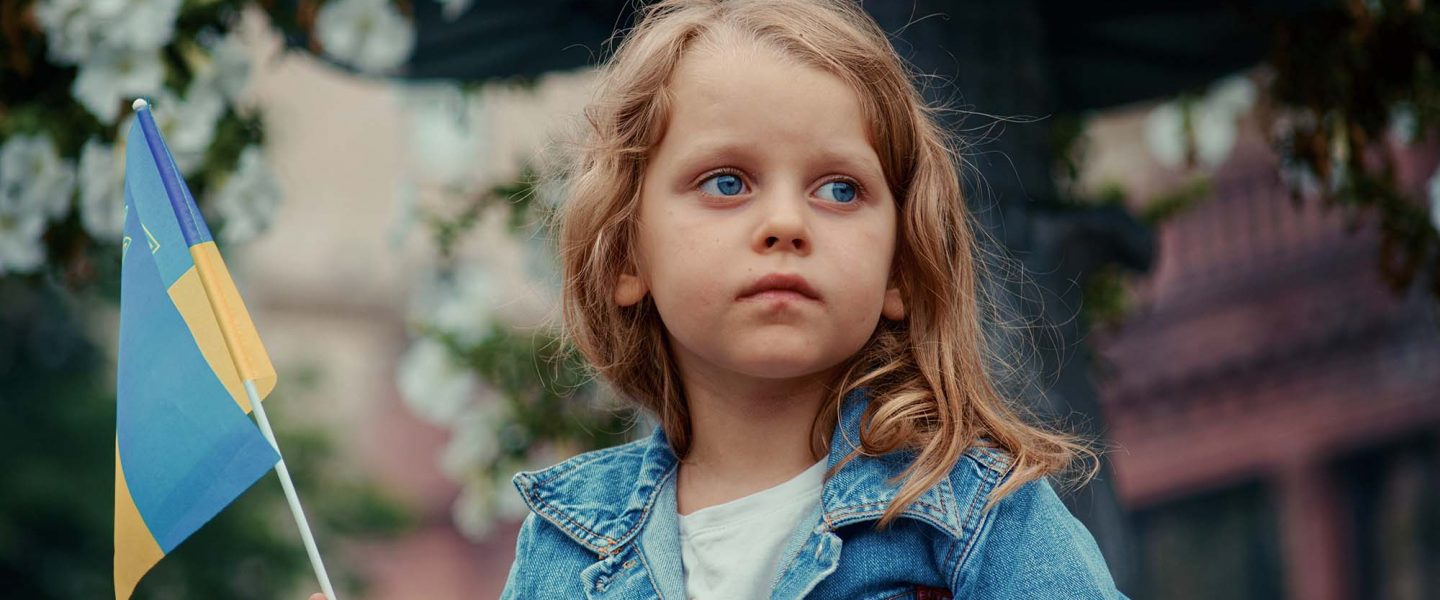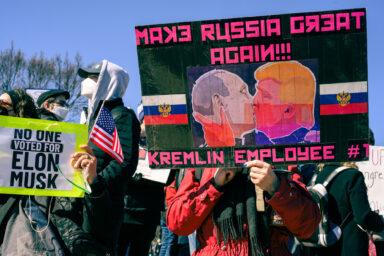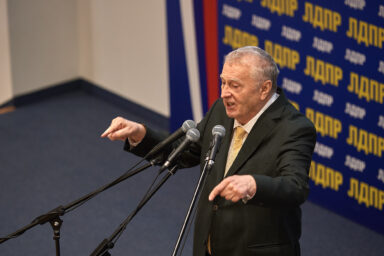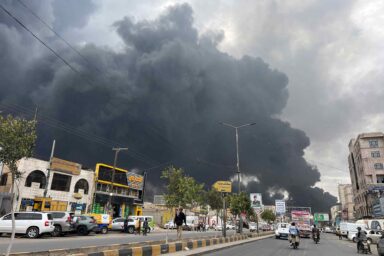Abducting children violates international law and constitutes a war crime. Russian propaganda paints a completely different picture.
|
Listen To This Story
|
Over 19,000 Ukrainian children have been abducted in the first year following Russia’s invasion of Ukraine. The Yale School of Public Health estimates that at least 6,000 Ukrainian children are currently living in Russian custody. The actual numbers are likely much higher.
Human rights lawyer Michael Scharf told USA Today that the real number is closer to 400,000 children.
The abduction of children constitutes one of the United Nations’ “six grave violations against children during armed conflict.”
These actions are not without consequences. In March, the International Criminal Court issued arrest warrants against Russian President Vladimir Putin and Russia’s Presidential Children’s Rights Commissioner Maria Lvova-Belova. They are accused of unlawful deportation and transfer of population, including children, from the occupied territories of Ukraine to the Russian Federation. Lvova-Belova had previously claimed to be running a “humanitarian evacuation of abandoned Ukrainian Children” and had asked Putin to sign a decree streamlining the adoption of Ukrainian children.
When Lvova-Belova was asked during an interview on VICE News television whether she considered herself a war criminal, her reaction was to laugh. “That’s very funny,” she said. She then dismissed the accusation.
“According to the Geneva Conventions, we can evacuate people, and children, from areas where their lives and health are in danger,” she argued.
However, the Geneva Conventions also make it clear that the temporary evacuation of children must be with parental consent and to a neutral state. Russia is clearly violating these conditions.
Nevertheless, Lvova-Belova stuck to her narrative. “We were rescuing children,” she emphasized. The Ukrainian Center for Countering Disinformation (CCD) has identified this as a principal Russian propaganda narrative: the manifestly false claim that Russia needs to save children because Ukraine does not care about them.
The CCD investigation reported that in another interview on a different Russian TV channel, Lvova-Belova insisted there were no official requests from Kyiv to return Ukrainian children. Ukraine disputes this and claims that “thousands of names” have been forwarded to the Russian human rights chief.
Russia also claims that Ukrainian soldiers used children as human shields. However, the UN reports that in the past year, there were 92 cases in which children were used as human shields. Ninety-one of these cases came from the Russian side.
Russian propaganda also claims that the Armed Forces of Ukraine fire on children. In fact, both sides are guilty in this respect. The UN report confirms in fact that Ukrainian forces did perpetrate 212 attacks on schools and hospitals. This is another of the six grave violations identified by the UN. In total, Ukrainian forces have maimed 175 children and killed 80.
In contrast to Ukrainians, Russians carried out 480 attacks on schools and hospitals during the same period. Russians maimed 518 children and were responsible for the death of 136 children.
A second propaganda narrative identified by the CCD contends that Ukrainian children need to be protected from the West. This narrative claims that the West allegedly indirectly kills Ukrainian children by supplying the Ukrainian forces with weapons, which are then used against the child population.
Russia’s third principal line of propaganda, according to the CCD report, contends that “Russia is a genuine ‘paradise’ for children.”
 The propaganda attempts to paint a picture of better living conditions, health care, and superior education for Ukrainian children in Russia. Many of the children come to repurposed summer camps, some even with the parent’s consent. Forty-three of these camps are scattered across Russia, according to the Yale School of Public Health. Current camp conditions are unclear. Social media posts and Russian media show children participating in skits, songs, and sporting events. So far, there have been no reports of children being mistreated.
The propaganda attempts to paint a picture of better living conditions, health care, and superior education for Ukrainian children in Russia. Many of the children come to repurposed summer camps, some even with the parent’s consent. Forty-three of these camps are scattered across Russia, according to the Yale School of Public Health. Current camp conditions are unclear. Social media posts and Russian media show children participating in skits, songs, and sporting events. So far, there have been no reports of children being mistreated.
Nevertheless, the executive director of Yale University’s Humanitarian Research Lab, Nathaniel Raymond, told The Atlantic that even if the children are well treated, abducting children still constitutes a war crime. “They can be given caviar every day, riding horses and having the best day ever, and it’s still a war crime,” says Raymond.
There is also concern about mental health. Some Ukrainian children who have returned report that they have been made to undergo “reeducation,” including military training. In Russian media, the camps are presented as “integration programs.” Ukrainian children are made to learn the Russian national anthem and stand during its performance. Anyone who refuses is punished. The children are forbidden to speak Ukrainian. Teachers tell them that no one is waiting for them at home. There is an effort to turn them against their pro-Ukraine parents. Some are prevented from contacting their relatives.
Lvova-Belova and Putin have also made it simpler for Ukrainian children to acquire Russian citizenship. This makes it harder for Ukrainian parents to retrieve their children from the camps. Parents who were told that their children were at a camp for a two-week holiday, often find that their children are being kept in camps for months on end.
The CCD points out that the granting of citizenship is in alignment with patriotic propaganda aimed at “reproducing the so-called all-Russian identity.” They explain that authorities are unhappy with the demographic decline of Russian identity and culture. Targeting Ukrainian children is part of a campaign designed to make “all citizens of the Russian Federation feel like patriots, ready to kill on the orders of the dictator.”
In line with this, the Parliamentary Assembly of the Council of Europe (PACE) has recognized the forcible transfer of Ukrainian children as an act of genocide. Putin and Lvova-Belova are accused of attempting to ethnically cleanse a whole generation of Ukrainian children. When Ukrainian orphans are given new names in Russian adoptive families, they become untraceable, and their heritage is erased.




